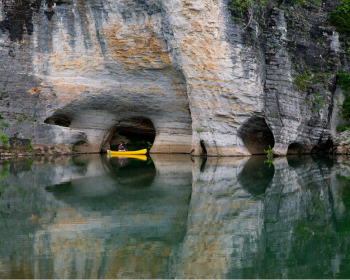PEAC and Yakama Nation attorneys obtain order blocking shipment of Hawaiian garbage
Open gallery

During the last two weeks of July, Pacific Environmental Advocacy Center (PEAC) summer interns Amy van Saun and Sarah Kutil worked with PEAC Managing Attorney Tom Buchele to get an emergency temporary restraining order against the US Department of Agriculture (USDA). This temporary order stopped the USDA from allowing waste-hauling companies to import garbage from Hawaii and ship it through the Columbia Gorge Scenic Area to a landfill in Klickitat County, Washington. PEAC worked with attorneys for the Yakama Nation, whose clients were not consulted about this plan even though it directly affects their historic lands.
On August 30th, the PEAC students and PEAC attorney, Tom Buchele, convinced Federal District Court Judge Edward Shea that the temporary restraining order should be replaced by a preliminary injunction. That injunction will prevent any shipments of Hawaiian garbage until the Judge can issue a final ruling on the merits. The USDA’s attorneys vigorously opposed any extension of the restraining argue, insisting that the case was moot because the USDA had “terminated” its specific authorization to ship the garbage. However, the USDA did not withdraw its final agency decisions regarding the sufficiency of its environmental analysis, and PEAC student Sarah Kutil’s excellent legal research confirmed that under these circumstances the case was clearly not moot. The District Court agreed and cited much of Sarah’s legal research in the preliminary injunction order.
In this lawsuit, PEAC represents Friends of the Columbia Gorge, the Northwest Environmental Defense Center, Columbia Riverkeeper and two Washington residents, Dawn Stover and Dan Lichtenwald. PEAC’s clients oppose the plan because the Hawaiian garbage might contain invasive species that would colonize the Columbia Basin. The responsible federal agencies did not properly evaluate and disclose to the public the environmental impacts of this plan as the National Environmental Policy Act requires.
Judge Shea agreed in both his Temporary Restraining Order and his subsequent preliminary injunction order that PEAC had shown a high likelihood of success on the merits of its legal claims and a high likelihood that the plan would irreparably harm PEAC’s clients.
You can read the following news articles related to this case:
and OPB.
Also, check out the PI Order here.
Earthrise Law Center is located in Wood Hall on the Law Campus.
MSC: 51
email earthrise@lclark.edu
voice (503) 768-6736
fax (503) 768-6642
Allison LaPlante
Earthrise Law Center
Lewis & Clark Law School
10101 S. Terwilliger Boulevard MSC 51
Portland OR 97219
Related Content
- piorder (PDF)
- OPBHawaiianGarbage.docx (File)
- SeattleWeeklyArticleHawaiianGarbage.docx (File)
- OregonLiveArticleHawaiian Garbage.docx (File)

